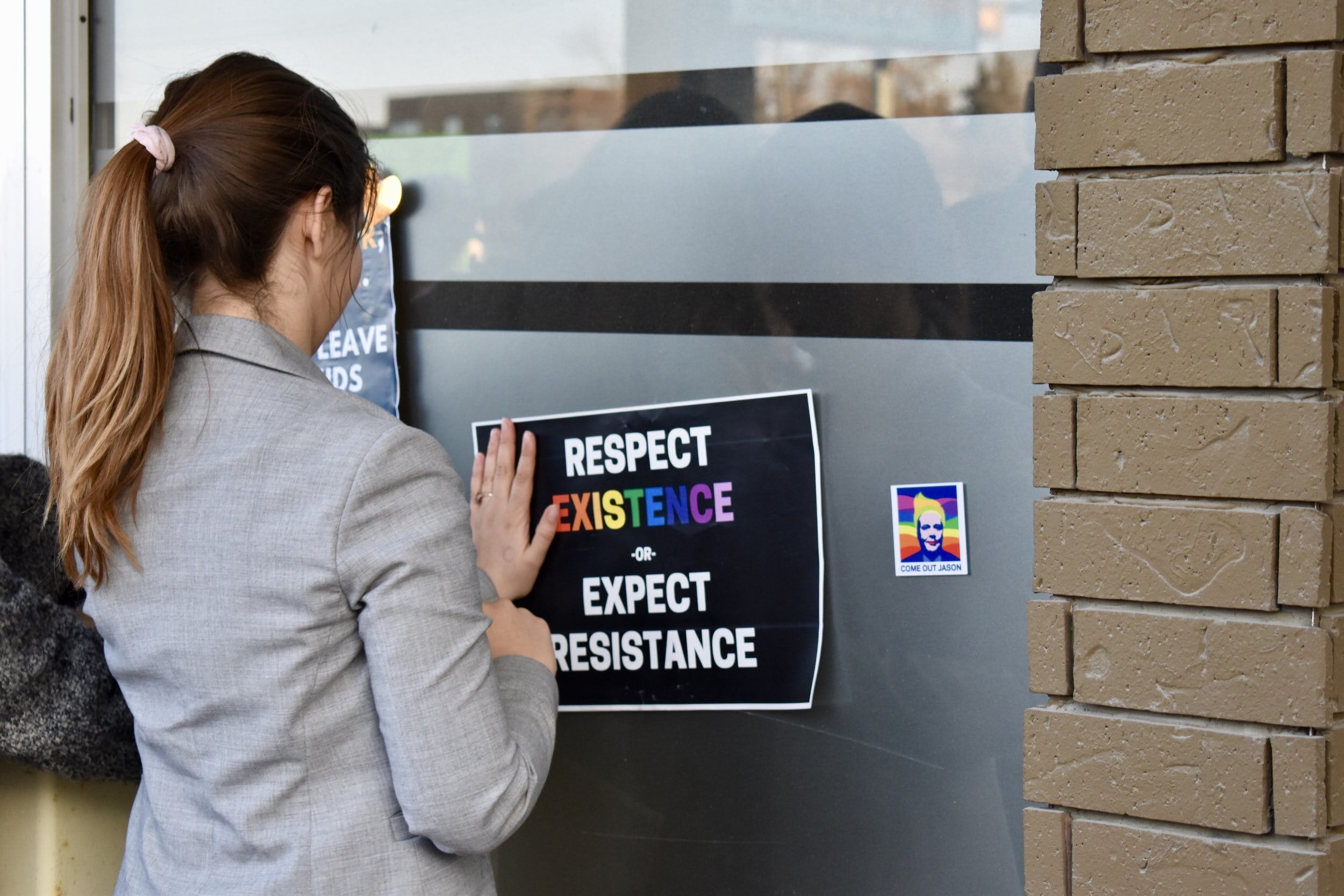LGBTQ+ Relationships
Finding A Therapist to support caring for your Unique relationship
WHO IS THIS FOR?
Relationships between couples can be a tentative space of both excitement and hesitation. Your culture, your gender and your identity all bring weight to your presence with your partner. LGBT+ relationships may at times require support.
LGBT+ relationships are a kaleidoscope of experiences, the same as any other relationship. It’s important you feel your journey is seen and respected. Through counseling, you can enlist a supportive guide who uniquely understands the circumstances and celebrations in your world and can offer your relationship a chance to navigate with more clarity.
Stigma and support
Some people still feel their opinion has a place in the life expression of others. While many queer relationships are met with support from family, friends and community, this is unfortunately not a universal response.
Stigma can be a powerfully painful expression of judgement, and working through its root and your responses is not something you have to do alone. It is not uncommon for queer couples to unconsciously internalize shame from others, which can impact the way they experience love, pleasure and connection to each other.
Both support and stigma can have an impact on your experiences.
Whether you are working through the effects of stigma or the impact of support, it’s important to create space for the emotional needs of yourself and your partner as it relates to the communities around your relationship.
Gender roles and identity
Finding symbiosis can be a challenge in any relationship. Having a shared experience in expectation can create a deep understanding of identity development, but it may also create some divisive emotions.
While you may find your rhythm in your private life and room for the gender spectrum to take on a unique shape, notions of preconceived gender roles can create limitations in your public life.
Communicating your individual needs is critical to finding balance in your roles and identity as individuals and as a couple.
We would love to help guide you in supporting one another by way of clear understanding and exploration of your assigned and desired identities.
Intimacy and Sex
The spectrum of emotional and physical intimacy needs is wildly diverse in all relationships. The predominant narrative of sex and intimacy is one that is inherently heteronormative and has placed limitation on how masculine and feminine bodies should experience pleasure, sex, romance and intimacy. LGBTQ+ couples have a wonderful opportunity to move past the limitations of heterosexism and find authentic ways to connect with each other.
There are so many variables to consider when balancing the intimate needs of individuals to create a thriving coupledom. Our queer-affirming therapists are here to help you untangle any potential internalized homophobia to cultivate a vibrant picture of intimacy to color your future in a way that meets your and your partner’s personal needs. In supporting an honest exploration of your experiences with intimacy and sex, we can create space for healing as much as curiosity and filled with pleasure and joy.
SAME
(BUT DIFFERENT)
Many of the woes we navigate through in our relationships are shared by others across every demographic.
Financial worries.
Miscommunication.
Time management.
Energy deficits.
The perils of life getting in the way of love often challenge the way we show up to our relationships. Those challenges are filtered through not just the lens of our individual experience but the collective assumptions of our identities as well as potential trauma from our pasts and environments.
We may share the struggles, but we do not share the solutions. It can feel defeating but there is power in this harsh truth. Through careful personal consideration and care, we can craft solutions that will outlast any struggle you may face with your partner and help your relationship flourish beyond the expectations placed upon you.
Binary bias
Male-presenting people are prescribed to be the providers. The burden of “survive and thrive” in a material sense is theirs to bear. Their interests stereotypically fall into a topical sector of entertainment separated from reality like sports or gaming, and their worth resides largely in a lack of emotional engagement.
Female-presenting folks, on the other hand, are expected to accommodate those interests along with their male counterpart’s emotional needs, whether those needs are clearly expressed or not. The burden for communication and domestic organization falls to them. Their interests are often expected to lie outside of themselves.
Though it’s archaic, many of the archetypes for heterosexual relationships are rooted in a gender system based on two primary sexes. The roles for friendships, interests, tasks and priorities fall within this system with some deviation but a reliable enough consistency that it’s become the norm. The impact of these assumptions is powerfully felt in assigning relationship roles and recognizing needs.
Reject to heal
People, just like relationships, don’t fit into boxes. The forced prescription of such does as much damage to our relationships as it does to us. we were not designed to be binary in this regard, nor should we be expected to conform to such rigid definitions of our humanity based on biological restrictions beyond our control. Rejecting these roles is valuable in cultivating honest care and communication in relationships among partners of the same sex and can also be personally liberating.
Outside ourselves
The way our relationships are perceived by those outside of our “bubble” can bring clutter into our care as well. Whether it’s negative or positive, the opinions of others often carry weight in our interactions and we may not even be aware of the ways they influence us.
Through therapeutic support, we can offer you the chance to break down your relationship with peer and community input. Moving through the influences that have joined you and your partner from your past can be cathartic and free up the space to love one another and yourselves more wholly and authentically.
You are capable of rejecting the portions of others’ judgment that do not serve you and we want to empower you to do so in a way that allows you to show up to your relationship with all the support available to you and as little of the hurt as possible.
FREQUENTLY ASKED QUESTIONS
I’m afraid my relationship won’t last because it’s conventional.
Isn’t every relationship? We challenge you to consider that your relationship is more like a fingerprint than a carbon copy, and there is no predestined way to get it wrong- or right. It may not last, but that’s not because your relationship is same sex.
Relationships fail for a myriad of reasons and many of them can be supported and navigated through communication and a healthy therapeutic relationship with a counselor. Learning to care for yourself, for your partner and for your unique relationship dynamic is the best safeguard to your relationship health.
Will my family ever accept my same-sex partner?
You cannot change your own heart any more than you should feel responsible for changing their minds. It’s possible that they won’t and that can be a difficult realization to come to terms with. If your family is determined to reject your partner based on their values or preconceived notions, they will lose out on the gift of seeing you celebrated in love the way that you deserve to be.
We understand that pain and would love to help you work through the difficult questions and uncertainty of family contention in a loving and supportive manner.
Will we share a counselor, or have our own?
That’s up to you! Couples counseling will best benefit from working through relationship communication and shared struggles or trauma that you are looking to overcome as a unit.
Each of us has a past, and making the space to work through that with an advocate and confidante who can be trusted to offer unbiased guidance through your individual experiences will only benefit your relationship. Should you choose to seek individual counseling in addition to couple’s therapy, you will see your own therapist who does not share a relationship with you as a couple or your partner’s individual therapeutic progress.
My partner isn’t convinced counseling will help.
That can make things more discouraging but it isn’t required for you to see a benefit from seeking counseling. Individual therapy can still support healing within your relationship, particularly as it related to the stigma and stereotypes you may face in a same-sex relationship.
While navigating those shared dynamics will always be most holistically managed with both of you putting in the effort, you are not responsible for convincing your partner of those benefits. Come to therapy and let us support you. They will always be welcome to take part, but your healing is not bound to their conviction.
There's nothing wrong with you. There's a lot wrong with the world you live in
- Cris Colfer
CELEBRATING YOUR SAME-SEX RELATIONSHIP
With made-for-you expertise
There are no unique modalities for approaching counseling support in a same sex relationship. There are, however, unique tools and approaches to navigating the experiences you and your partner have brought into your relationship.
By offering a tailored approach to your needs, we will use a combination of therapeutic techniques to ensure you feel supported as individuals, a couple and within your relationship identities.
In finding little wins
When adversity forces a place at center stage in your life just because you’ve chosen to live authentically in love, it can feel hard to take up space for the positive things you experience.
Focusing your energy on finding the small moments and milestones that do make you feel good can offer space to take your power back for yourself and within your partnership. Be relentless in your pursuit of support, and know you are deserving of feeling the warmth it provides.
Prioritize romance
And we don’t just mean your partner. In fulfilling relationships, there is so much to gain in offering romance every day.
For yourself, your partner and the health of the relationship, small ways to connect that communicate your care for one another can help reinforce the efforts you are making in building sustainable change and support together. Romance each of those facets with care that feels authentic and affirmations of worth. Romance can look rather utilitarian, but feel positively indulgent.











